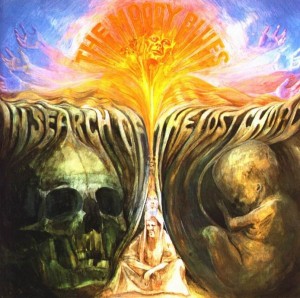Lemmings! What a Game?
Ever really wondered about lemmings? Why the mass suicide? After all, they’re cute, cuddly and cool. Other than knowing that they kind of looked like miniature Guinea Pigs, I didn’t know why some of the oft told tales were told in the first place. Saw the critters for the first time in Norway, as a sailor on liberty.
I could be construed as an old fart… a curmudgeon if you will – my first computer was a kit I built. I’ve actually seen a “core memory,” i.e., a matrix of little ferrous oxide donuts. I remember a nifty little game called Lemmings by DMA where the object was to save the mindless little fur balls from blindly committing mass suicide. It was an addicting game, something that a person could mindlessly play and wake up days later wondering where his wife and kids have gone. Myth has it that there were millions of people following each other into the game’s escapist abyss.
As it happens, Wikipedia has a pretty good entry on these lovely creatures that sheds a little light on their behaviors. They have another article that sheds some light on the game. The article (on the actual critters) is substantial enough, but there is a small and interesting little segment worth reproducing for your scientific, historical, and anthropological appreciation: *snort*
While many people believe that lemmings commit mass suicide when they migrate, this is not the case. Driven by strong biological urges, they will migrate in large groupings when population density becomes too great. Lemmings can and do swim and may choose to cross a body of water in search of a new habitat. On occasion, and particularly in the case of the Norway lemmings in Scandinavia, large migrating groups will reach a cliff overlooking the ocean. They will stop until the urge to press on causes them to jump off the cliff and start swimming. They then swim to exhaustion and death. Lemmings are also often pushed into the sea as more and more lemmings arrive at the shore.
The myth of lemming mass suicide is long-standing and has been popularized by a number of factors. In 1955, Disney Studio illustrator Carl Barks drew an Uncle Scrooge adventure comic with the title “The Lemming with the Locket”. This comic, which was inspired by a 1954 National Geographic Society article, showed massive numbers of lemmings jumping over Norwegian cliffs. Even more influential was the 1958 Disney film White Wilderness, which won an Academy Award for Documentary Feature, in which footage was shown that seems to show the mass suicide of lemmings. In more recent times, the myth is well-known as the basis for the popular 1991 video game Lemmings, in which the player must stop the lemmings from mindlessly marching over cliffs or into traps. A Canadian Broadcasting Corporation documentary, Cruel Camera, found that the lemmings used for White Wilderness were flown from Hudson Bay to Calgary, Alberta, Canada, where they did not jump off the cliff, but in fact were launched off the cliff using a turntable.
Due to their association with this odd behavior, lemming suicide is a frequently-used metaphor in reference to people who go along unquestioningly with popular opinion, with potentially dangerous or fatal consequences. This metaphor is seen many times in popular culture, such as in the video game Lemmings, and in episodes of Red Dwarf and Adult Swim’s show Robot Chicken. In Urban Terror, falling to one’s death is called doing the lemming thing.
By now the video and the commentary should make a little sense… in terms of where this post is going, that is, and if it isn’t quite there yet, take a trip to the UK’s TaxFreeGold site and you’ll find an article that lifts an awful lot of info right out of the Wiki article – to compare and describe people chasing gold on eBay. That’s it, us human lemmings, what are we doing?
Believe it or not, this post was spurred by research on felony/criminal disenfranchisement. Before I actually posted anything on the topic, I wanted to comment on the craziness of Americans wanting to be more like Europeans. “Let’s do this thing, or that thing, because that’s how the Europeans do it… “I’m pretty certain my folks and grand folks said things like, “Steven, if all your friends jumped off a bridge – would you?”
…ok, bad example. There was that train trestle in Corvallis. Still, I’m pretty sure you get the drift here – I’m hoping we’ve somehow grown up. Tom over at Responsibility, Neo over at NeoNeocon, and countless others have been spending time reasoning with us about everything from health care to cap and trade, from taxes to Afghanistan. If we’re jumping from the cliff for goodness sake, let’s look before we leap.
A tremendous body of advocacy writing concerning felony disenfranchisement spends its time comparing us to European countries and waxing long on our failure to be like them… Screw that, let’s be like us, and if we want to change the way we do business let’s keep it internally consistent! Let’s do it because it’s the right thing to do, not because somebody else is doing it. Sheesh!!
The mini rant is over. I think I needed a diversion from this disenfranchisement research – it’ll be up soon (the post on felony disenfranchisement), and hopefully it’ll achieve a certain brevity and clarity that is sometimes missing here.
Cheers all!



 I suppose I could multiply quotes concerning the nature of politics, but the first one will do with one caveat, and that is “Politics is the acquisition, exercise, distribution, and maintenance of power.” While it should be wise, that is more wish than fact. P.J. O’Rourke’s definition, on the other hand, serves fine as is 😉 I’ve already written about my take on the nature of
I suppose I could multiply quotes concerning the nature of politics, but the first one will do with one caveat, and that is “Politics is the acquisition, exercise, distribution, and maintenance of power.” While it should be wise, that is more wish than fact. P.J. O’Rourke’s definition, on the other hand, serves fine as is 😉 I’ve already written about my take on the nature of 

